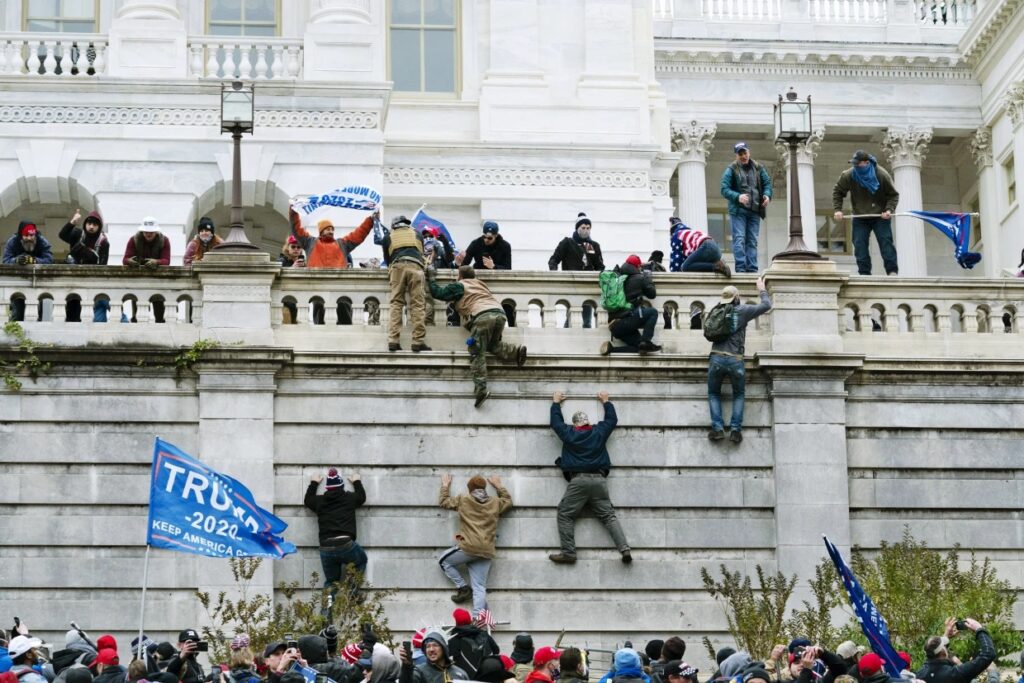
Photo: Jose Luis Magana/AP
While Lincoln’s Gettysburg Address is one of the most remembered and well-regarded, it is not his greatest speech. His second inaugural address was far superior and can be viewed as a prophecy for today’s divided nation:
“On the occasion corresponding to this four years ago all thoughts were anxiously directed to an impending civil war. All dreaded it, all sought to avert it. While the inaugural address was being delivered from this place, devoted altogether to saving the Union without war, insurgent agents were in the city seeking to destroy it without war—seeking to dissolve the Union and divide effects by negotiation. Both parties deprecated war, but one of them would make war rather than let the nation survive, and the other would accept war rather than let it perish. And the war came.”
With a country deeply divided, we saw, for the first time in US history, a president not only denying that he lost an election but pushing his faithful supporters to the edge of unreason: “We fight like hell, and if you don’t fight like hell, you’re not going to have a country anymore.”
And the war came.
The January 6 insurrection was a war against democracy as more than 2,000 insurgents were outside the Capitol building—the symbol of American democracy—seeking to destroy it by stopping the certification of the state’s electoral votes by the vice president.
“Both read the same Bible and pray to the same God and each invokes His aid against the other.”
According to Pew Research, “Most white Americans who regularly attend worship services voted for Trump in 2020. . . [while] Nine-in-ten Black Americans who attend religious services monthly or more voted for Biden.”
“The prayers of both could not be answered ~ that of neither has been answered fully. The Almighty has His own purposes. ‘Woe unto the world because of offences (sic) for it must needs be that offenses come but woe to that man by whom the offence cometh.’”
Slavery was the offense Lincoln was speaking of.
On January 6, near the front of the White House, the former president urged his supporters to “fight like hell” under the guise of saving the country, resulting in a violent attack against the seat of government. His actions were an offense to the “peaceful transfer of power” and the rule of law.
“Fondly do we hope ~ fervently do we pray ~ that this mighty scourge of war may speedily pass away.”
Throughout his speech, Lincoln uses the words “us,” “both,” “we,” and “all” to demonstrate that we are all part of the problem and all responsible for the solution.
“Yet, if God wills that it continue until all the wealth piled by the bondsman’s two hundred and fifty years of unrequited toil shall be sunk and until every drop of blood drawn with the lash shall be paid by another drawn with the sword. . .”
Lincoln warns that continuing the conflict will only result in more death and division.
In our current context, Lincoln’s last line might be interpreted that if the “lash” of violence continues, it will be met with the “sword” of justice. The Justice Department continues to prosecute those who stormed the Capitol; some are already serving prison terms.
“With malice toward none with charity for all with firmness in the right as God gives us to see the right, let us strive on to finish the work we are in to bind up the nation’s wounds.”
While Lincoln is aware of the remaining bitterness, he appeals to “charity for all…”
“…with firmness in the right as God gives us to see the right.”
Both the North and the South believed they were right. Lincoln is asking both sides to look within themselves to see the light of reason that will lead them to what is right.
With the wisdom of our past, let us pray that we may find that light.
Comments






